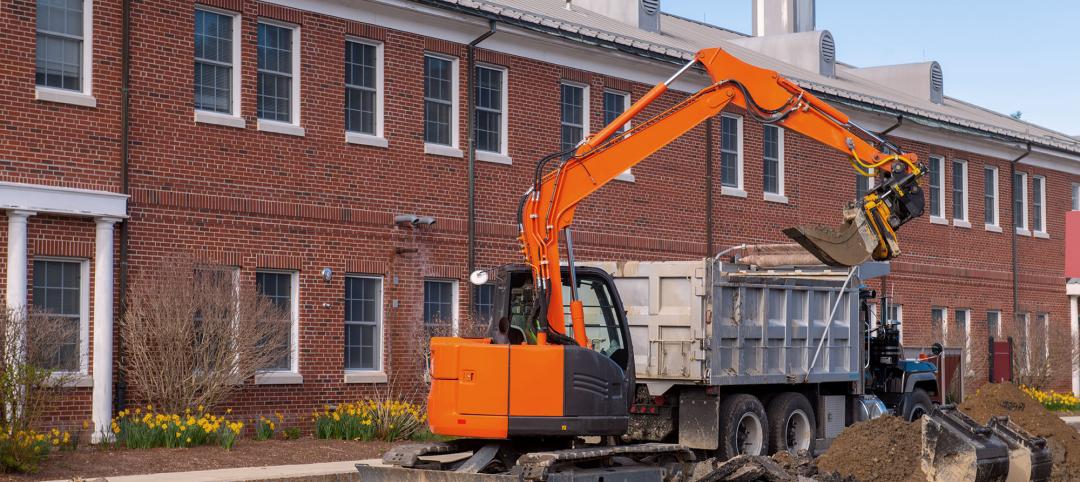About a year ago, Education Credit Management Corp. Group (ECMC Group), a nonprofit organization, finalized its acquisition of more than 50 Everest and WyoTech campuses from the now-defunct Corinthian Colleges chain. To execute that transaction, ECMC Group launched a subsidiary, Zenith Education Group, which provides career school training. This acquisition created the largest nonprofit career college system in America.
Upon closing this deal, Zenith began implementing key improvements in program quality, affordability, completion and job placement rates, and accountability and transparency.
Among Zenith’s initiatives was its Campaign for Innovation, sponsored jointly by ECMC Foundation and ECMC Innovation Lab, to encourage creative, actionable, and measurable ideas from campus employees about promoting student success. Greg Schuman, an electrician instructor at Zenith’s Tampa, Fla., campus, submitted an idea for Zenith to partner with the National Center of Construction Education and Research (NCCER) to be able to offer students NCCER certification upon their completion of electrician, HVAC, carpentry, or plumbing training.
Zenith’s 20-hour-per-week, nine-month program will give students much of what they need to know in order to be workforce day-one ready. And with the certification from the industry recognized NCCER, Schuman believes students who complete this program should be able to skip entirely the classroom part of any apprenticeship.
The Foundation liked Schuman's idea, and gave him a $36,095 grant to get his proposal off the ground. Next month, 15 of Zenith’s instructors will convene in Tampa to start learning to become NCCER-certified trainers.
Tampa is one of the nine Zenith campuses with building-trade programs that will offer this certification. The others are in Orange Park, Fla.; South Plainfield, N.J.; Chesapeake, Va.; Southfield, Mich.; and the Texas campuses at San Antonio, Arlington, Austin, and Houston.
In an interview with BD+C, Schuman explained that traditional apprentice trade programs typically involve both in-classroom and in-field training that can take several years to complete. “What we’re doing is frontloading the technical instruction part so the students will already have the classroom training” when they get hired.
Zenith’s 20-hour-per-week, nine-month program will give students much of what they need to know in order to be workforce day-one ready. And with the certification from the industry recognized NCCER, Schuman believes students who complete this program should be able to skip entirely the classroom part of any apprenticeship.
A knowledgeable, trained student is a valuable asset to construction firms at a time when their industry is flourishing and qualified workers are in shorter supply.
The Associated General Contractors of America (AGC) reported last week that the construction industry added 125,400 nonresidential jobs in 2015, a 3.2% increase over 2014.
“With the construction industry expanding at rates not seen since the downturn, public officials need to make sure we are encouraging and preparing students to consider high-paying careers in construction,” said Stephen E. Sandherr, the association’s CEO. “As our Outlook makes clear, the industry is likely to continue expanding this year, as long as there are enough workers available for firms to hire.”
A survey conducted by AGC and Sage Construction and Real Estate found that 71% of construction firms polled plan to expand their payrolls in 2016.
Schuman believes the certification program will give Zenith graduates a leg up at companies that hire them. Between 500 and 1,000 students will be involved in the program’s first year, and Schuman anticipates that several other Zenith campuses might begin offering building trade training if this program is successful.
Success will be measured primarily by placement rate, which now hovers around 60%. Zenith’s goal is 70%.
Related Stories
Mass Timber | May 8, 2024
Portland's Timberview VIII mass timber multifamily development will offer more than 100 affordable units
An eight-story, 72,000-sf mass timber apartment building in Portland, Ore., topped out this winter and will soon offer over 100 affordable units. The structure is the tallest affordable housing mass timber building and the first Type IV-C affordable housing building in the city.
K-12 Schools | May 7, 2024
World's first K-12 school to achieve both LEED for Schools Platinum and WELL Platinum
A new K-12 school in Washington, D.C., is the first school in the world to achieve both LEED for Schools Platinum and WELL Platinum, according to its architect, Perkins Eastman. The John Lewis Elementary School is also the first school in the District of Columbia designed to achieve net-zero energy (NZE).
Healthcare Facilities | May 6, 2024
Hospital construction costs for 2024
Data from Gordian breaks down the average cost per square foot for a three-story hospital across 10 U.S. cities.
MFPRO+ Special Reports | May 6, 2024
Top 10 trends in affordable housing
Among affordable housing developers today, there’s one commonality tying projects together: uncertainty. AEC firms share their latest insights and philosophies on the future of affordable housing in BD+C's 2023 Multifamily Annual Report.
Retail Centers | May 3, 2024
Outside Las Vegas, two unused office buildings will be turned into an open-air retail development
In Henderson, Nev., a city roughly 15 miles southeast of Las Vegas, 100,000 sf of unused office space will be turned into an open-air retail development called The Cliff. The $30 million adaptive reuse development will convert the site’s two office buildings into a destination for retail stores, chef-driven restaurants, and community entertainment.
Codes and Standards | May 3, 2024
New York City considering bill to prevent building collapses
The New York City Council is considering a proposed law with the goal of preventing building collapses. The Billingsley Structural Integrity Act is a response to the collapse of 1915 Billingsley Terrace in the Bronx last December.
Student Housing | May 3, 2024
Student housing construction dips in the first quarter of 2024
Investment in college dorms dipped slightly in the first quarter of 2024, but remains higher than a year ago.
Contractors | May 1, 2024
Nonresidential construction spending rises 0.2% in March 2024 to $1.19 trillion
National nonresidential construction spending increased 0.2% in March, according to an Associated Builders and Contractors analysis of data published today by the U.S. Census Bureau. On a seasonally adjusted annualized basis, nonresidential spending totaled $1.19 trillion.
K-12 Schools | Apr 30, 2024
Fully electric Oregon elementary school aims for resilience with microgrid design
The River Grove Elementary School in Oregon was designed for net-zero carbon and resiliency to seismic events, storms, and wildfire. The roughly 82,000-sf school in a Portland suburb will feature a microgrid—a small-scale power grid that operates independently from the area’s electric grid.
AEC Tech | Apr 30, 2024
Lack of organizational readiness is biggest hurdle to artificial intelligence adoption
Managers of companies in the industrial sector, including construction, have bought the hype of artificial intelligence (AI) as a transformative technology, but their organizations are not ready to realize its promise, according to research from IFS, a global cloud enterprise software company. An IFS survey of 1,700 senior decision-makers found that 84% of executives anticipate massive organizational benefits from AI.

















